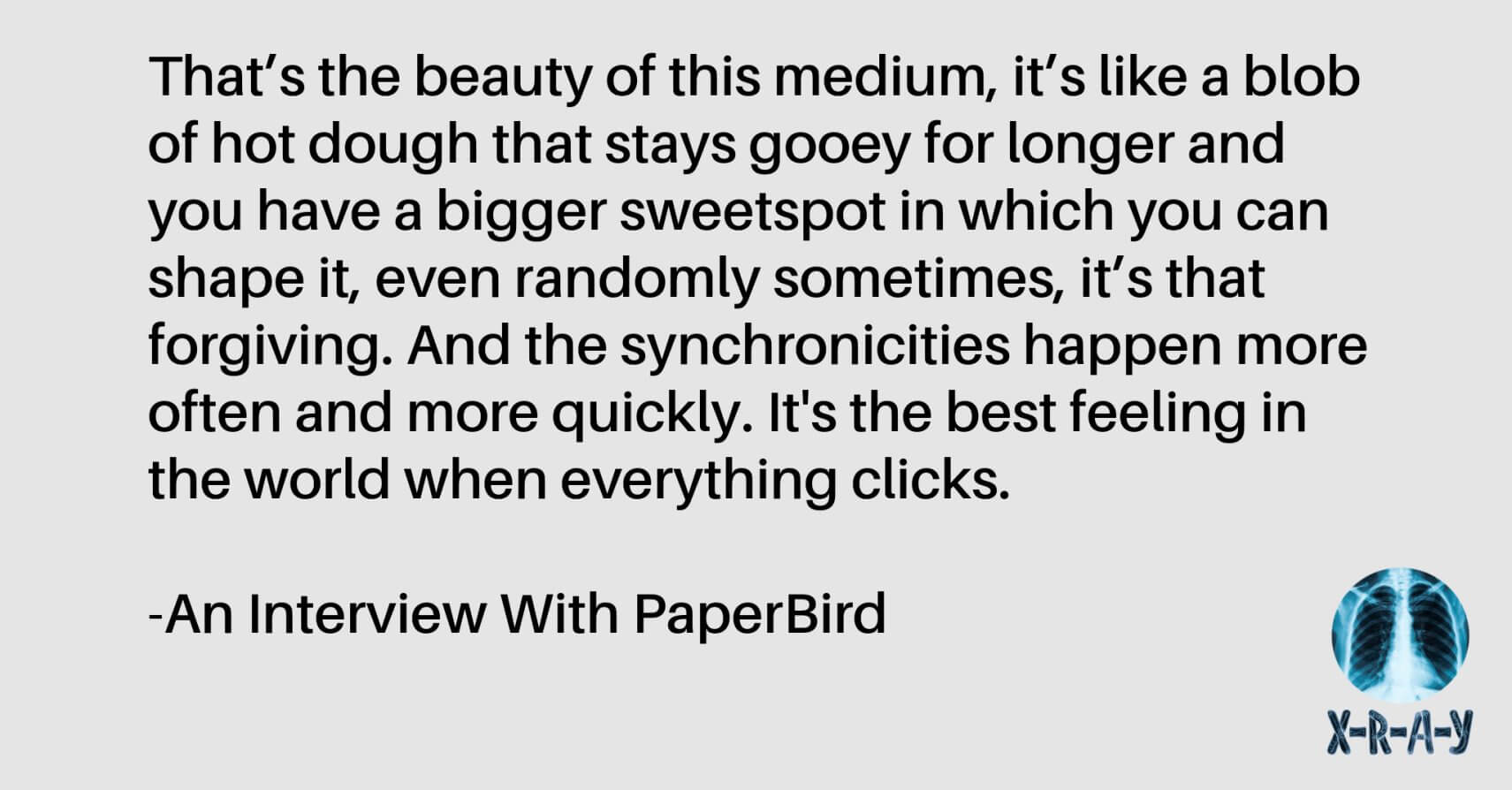
TRANSMISSIONS: PaperBird
Welcome to Transmissions, an interview feature in which X-R-A-Y profiles podcasts and book youtubers. PaperBird can be found on YouTube: www.youtube.com/c/PaperBird COURTING THE MUSE: PaperBird talks about obsession, recognition, and those damn teenage years. Meeting PaperBird was harder than I expected. It’s not that he’s reclusive or antisocial or anything like that; no. It’s just that his house is damn near impossible to find. He warned me about this beforehand, on the phone, saying that it takes “a car with all-wheel drive, a mountain bike, and a pair of hiking boots,” just to get there. I got directions to his…
